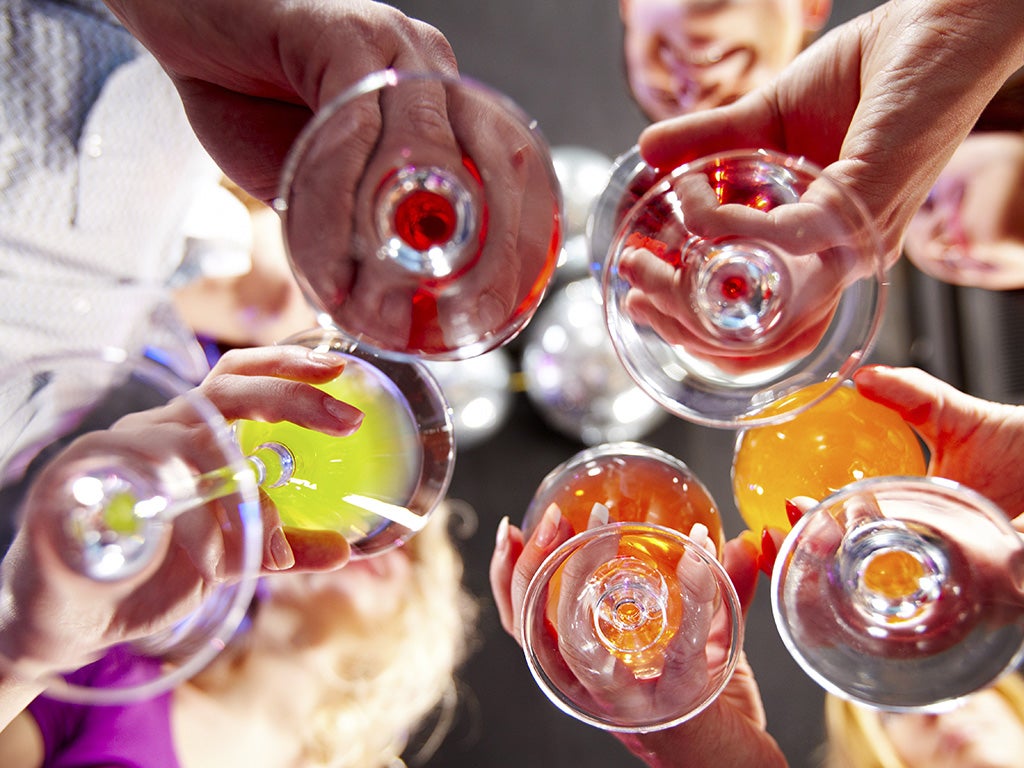The Independent's journalism is supported by our readers. When you purchase through links on our site, we may earn commission.
How alcohol makes you friendlier – but only to certain people
There are those we find more attractive and become more trusting of, and others we may become aggressive towards or misunderstand their intentions

Drinking alcohol is associated with aggressive behaviour, accidents and ill health. Yet many of us choose to drink socially. This may reflect alcohol’s actions on specific brain circuits which make us feel euphoric and less anxious. Alcohol may also make us more empathic and cause us to see other people as more attractive. But why do these reactions occur and are the positive effects of alcohol expressed towards everybody we interact with?
Alcohol is a drug, one of the three most commonly used in the world, along with nicotine and caffeine. When we drink, the alcohol binds to a specific type of receptor in the brain and boosts the activity of a natural brain chemical called GABA. The effect the alcohol has on us depends in large part on the dose, and the location of these GABA receptors within the brain.
Early on in a drinking session, the alcohol acts on GABA systems to boost the levels of dopamine, the brain’s reward chemical. This gives a sense of well-being and a sense of mild euphoria. Alcohol also acts on GABA receptors to impair the activity of the brain circuits that make us feel anxious and, at higher doses, alcohol inactivates a second set of brain circuits that control fear. So threatening stimuli no longer seem quite so scary. Alcohol also compromises our ability to compute risk so that situations we would normally shy away from may now seem quite inviting.
All of this points to alcohol as a facilitator of social interactions. As well as making us more empathic, laboratory studies have also shown that drinking alcohol can make us trust others more and make us temporarily more generous.
On the other hand, heavy drinking is associated with violent behaviour. This situation, however, is complex. Laboratory studies have shown that alcohol increases aggression. For example, it increases the willingness with which individuals will administer electric shocks to others. However, this effect seems to be largely restricted to those who are intrinsically aggressive in the first instance.
Equally, alcohol can corrupt our ability to understand the intentions of others. The brain contains specific circuits, which connect parts of the prefrontal cortex, amygdala and temporal parietal junction, that handle our social cognitive abilities. So our ability to understand somebody else’s mental perspective and their motivations for acting in a certain way become unreliable.
Very big doses of alcohol can leave the functioning of these circuits so compromised that individuals can appear to be as impaired as patients with some forms of dementia. This is quite a disturbing thought given the number of people who end up in this state in city centres at the end of a good night out.
Alcohol also impedes our ability to accurately interpret emotional expressions in faces. As we drink, we have a tendency to erroneously assume that some facial expressions of negative emotions are happy, and we find it particularly difficult to identify sad and angry faces. This leaves us prone to making embarrassing social errors.
One important, but often overlooked, aspect of alcohol’s effect on social functioning relates to how we perceive members of our in and out-groups. Alcohol appears to encourage us to bond to members of our in-groups. However, this may come at the cost of the way we treat people outside of these groups. Similarly, alcohol makes members of our ethnic in-group appear more attractive but this effect does not extend to members of other ethnic groups.
It must be emphasised that the effects described so far are potentially reversible once the drinker has sobered up. However, chronic heavy drinking can lead to brain damage and irreversible cognitive impairments, especially poor memory function, and psychiatric problems including depression, psychoses, anxiety and suicide.
So overall, alcohol may be a friend, and indeed make us friendlier, but only to a select group of people – and they may not always reciprocate.
Alcohol Friend or Foe? is part of the Pint of Science festival where academic experts talk about the latest in scientific research – at the pub.
Ian Mitchell is Senior Lecturer at University of Birmingham.
This article was originally published on The Conversation. Read the original article.
Join our commenting forum
Join thought-provoking conversations, follow other Independent readers and see their replies
Comments
Bookmark popover
Removed from bookmarks